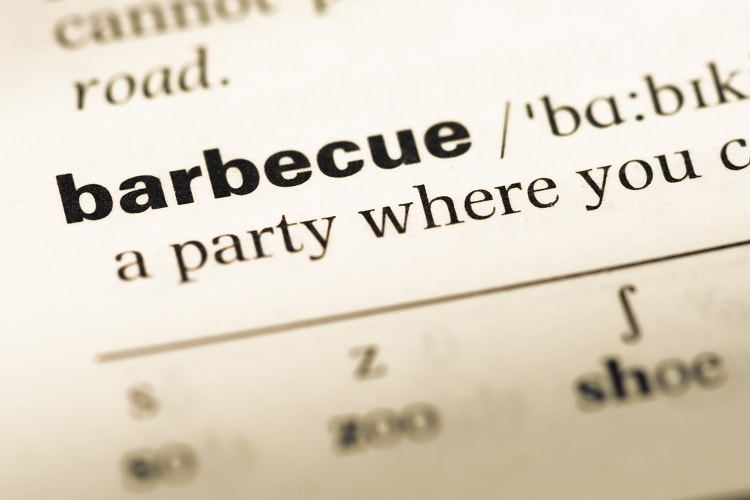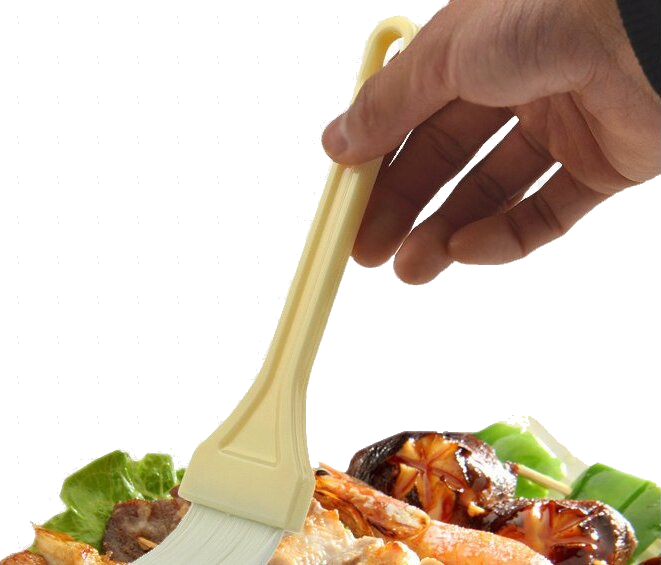BBQ Slang and Lingo
Understand the BBQ Pitmaster lingo
Bark: The flavorful outer layer of crust that forms on a brisket.
Blue Smoke: Refers to that magical moment when the smoke coming off the flame is lightly tinged blue. This is the optimal time for throwing meat onto the smoker.
Blowout: Juicy skin sometimes gets bruised due to overheating or a scratch that swells under fire. This is when a pitmaster has a blowout on their hands.
Burnt Ends: These morsels of smoked brisket—crispy, fatty bark bits (see below)—are a delicacy, particularly in Kansas City. They also go by the playful name of meat candy.
Butt over Brisket: When fatty pork butt is cooked atop brisket and its juices flow down through the grate to give the beef a little basting love.
Cascade: The gush of juice that should come forth when brisket is done right.
Crash in the Smoker: Sometimes meat lined up in the smoker sways off the track. When it does lose its balance, the collision is deemed a crash in the smoker.
Chipped Mutton: Chipped Mutton is a Kentucky specialty where a selection of bark and meat from mutton ribs, neck, and shoulders are mixed in a dip liquid.
Crutch: Preserving meat’s post-fire life is just as important an undertaking as smoking. Wrapping, say, pork shoulder in butcher paper helps absorb grease and create a protective shield—that’s the crutch.
Deckle: The smaller muscle of the brisket (also referred to as the point), the deckle is a fatty, marbled cut preferred by brisket aficionados.
Fat Cap: A thick layer of fat between the skin and flesh. Its presence ensures a piece of meat is flavorful and tender. Whether brisket should be cooked with the fat cap up or down is a long-standing debate among pitmasters.
Injection: Stabbing a syringe full of marinade—every pitmaster has his or her own recipe—is a common way to infuse meet with extra flavor.
Jiggle: Properly cooked brisket will quiver when touched.
Mop: Brushing this vinegar-based sauce on a piece of meat before cooking adds a burst of flavor and caramelization.
Money Muscle: This choice piece of pork, located high on the shoulder, is moist and flavorful. A its name implies, it often pulls in the loot during competitions.
Mr. Brown: The dark, crunchy exterior of whole-hog barbecue.
Miss White: The light, moist interior of whole hog barbecue.
Mr. Brown Goes to Town: Refers to the Memphis ritual of adding crunchy pieces of pork to sandwiches.
Pit Boss: Also heralded as the pitmaster, this is the sweaty, greasy badass who presides over the red-hot coals to create smoky, char-encrusted proteins of perfection.
Power Cook: If a pitmaster is behind on his or her cooking, cranking up the heat to overcompensate is a must.
Shiggin: When slick pitmasters spy on their competitors to uncover BBQ secrets, the covert practice is called shiggin’.
Shiners: Shiners should be avoided. When a rack of ribs bares exposed bones, it means too much meat has been butchered off. The bones, therefore, “shine through” the meat.
Smoke Ring: Smoking meat leads to a release of nitric oxide and carbon monoxide. When combined with myoglobin, a protein found in the meat, a coveted pink hue called the “smoke ring” appears just underneath the bark. Often considered the sign of a good brisket.
Texas Crutch: For brisket, star of the Lone Star State, many pitmasters prefer nestling it in aluminum foil. A sure-fire way of holding in moisture, the technique preserves extra-succulent slices.
The Stall: A period of smoking a brisket when the temperature seems to have peaked, even though it’s still well below the temperature you want to achieve. It should be called ‘The Darkest Hours’ or something to indicate the devastation you feel at the possibility of wasting countless hours and a lot of money on an undercooked brisket.”—Tim Carman
Wide and Narrow: How to describe a rack of rib’s girth.
White Sauce: A specialty of Alabama, this zesty mayo-based concoction typically dresses BBQ chicken.

